This post may contain affiliate links. Please read our disclosure policy.
I am a play therapist with a background in elementary education & child development, so I like to use my education to help others by sharing tips. Today I was talking to a parent and she was concerned with her son’s development. She asked, “What can I start teaching my baby that will help with development?” He was about 10 months old. I suggested these important activities for her baby…
These are my favorite activities for those sweet little babies! I hope that these tips help you. I will also share a few of my favorite baby toys with an affiliate link to find them online.
Can you really make your baby smarter?
Every time that your child plays, interacts with you, giggles frowns, smiles, cries… they are learning, which means they are getting smarter. So many parents want to know, “When can I start teaching my baby when they are so young?” The truth is, this is a great age! Between the ages of 6-12 months, you can expect your child to be learning a lot and really engaging in activities with you!
Be creative in your play with your child! Sounds, touch, taste… these are all ways to teach babies. You don’t need to buy a ‘Teach my baby learning kit’ … you just need to play. 🙂
“Why is it So Important to Start Teaching My Baby?”
According to the Urban Brain Institute: “Because experiences have such a great potential to affect brain development, children are especially vulnerable to persistent negative influences during this period [0-3 years].
On the other hand, these early years are a window of opportunity for parents, caregivers, and communities: positive early experiences have a huge effect on children’s chances for achievement, success, and happiness.
The fact that children are affected by their surroundings is too obvious to bear repeating. Child development specialists have produced decades of research showing that the environment of a child’s earliest years can have effects that last a lifetime.”
“How Can I Start Teaching My Baby?”
1- Use Music.
Studies have always shown a link between music & cognitive development in babies. The greatest growth is from when they are still in the womb to two years of age, the time when listening-based learning is at its peak. Use a music immersion program like Nuryl, a customized music app designed to jump-start the baby’s cognitive development during this time of brain growth.
One recent research study from the University of Washington’s Institute for Learning & Brain Sciences (I-LABS) adds weight to the claim that playing music makes babies smarter. The study shows that a series of play sessions with music improved the baby’s brain processing of both music and new speech sounds.
2- Interact with your child.
Sing with your baby. Dance with your baby. Use music as a jumping point to do this. Did you know that our children start to learn from us when they are still in the womb? Music has been a link to advanced math skills, foreign language aptitude, memory, and focus, to stimulate a baby’s brain development starting in the 5th month of pregnancy to the second year?
Make it fun by adding finger puppets – not only is it fun but it also will enhance their hand-eye coordination. Find songs & fingerplays about those first words, first numbers, first animals & more.
3- Say Hello. Say Goodbye.
By one year, your baby will start to prefer you and begin to cry when you leave. This separation anxiety is normal and healthy. Just tell your baby goodbye and that you will be back.
Do not sneak out! This will only make your baby more anxious the next time that you are around since he/she won’t know if you are going to sneak out again. Just be cheerful when you leave, as if it is no big deal… “Bye, sweet girl! I’ll see you soon! Have a great day! Love you!”
(Talk in the “Mother-ease” that I mentioned in THIS POST.)
With that being said, remember that it is a good thing to let your baby be with other people that will love & care for her/him. My mom watches our kids every week while I work (and many times during the week for other things!) My husband’s parents visit often (from six hours away), as well.
4- TEACHING: You can start showing your baby more books and flashcards. An example would be to teach him/her about the dog. Show your baby a picture of a dog and say “Look at the doggie! Ruff-Ruff!”
Continue to do this. (Teaching body parts, animals, vehicles…)
By 12 months, your baby will be able to point to the correct picture when you show him/her more than once and ask “which one is the dog?” What a great milestone!
5- Teaching your baby new words. “Ma-Ma”. Say it to your baby and they will try to repeat the word (or at least babble back to you). Don’t be too concerned if this does not happen yet, just keep working on it and in the meantime take a look at my post on Activities to help your child with their speech development.
Your child should be saying single words (Mama, Dada) by a year, but every baby is different and this may vary a little. If you do not see this happening by 12 months, you may want to bring it to your pediatrician’s notice (just mention it at their 1-year appointment).
Most doctors will not suggest speech therapy until close to two years of age.
RELATED: 10 SPEECH THERAPY IDEAS TO DO AT HOME.
6- A fun activity is to take their favorite small toy (rattle, doll) and let them WATCH YOU hide it under a little blanket. You might even want to leave a little peeking out. Your child will learn to find it now!
By 12 months, your child will be able to uncover this and find that hidden treasure! (Remember that she/he will have to see you hiding it).
7- Read to your baby!* Babies love hearing the same book read over and over. When our oldest son was almost one, he had two favorites: Each Peach Pear Plum and Mickey’s Blanket. We would read these constantly and he loved them!
*Remember that reading a book does not mean that you have to “read” the book. You can use it as an opportunity to point to pictures, talk about things, pretend to eat the food in the books. Our kids have fun when we pretend to take the hats off of the characters and put them on our own heads, too!
All of these things will benefit your baby in many ways! Take a “picture walk” (looking & talking about the pictures) with your child when you “read” these books!
8- Do new things – we have taken each of our kids on my parents ‘boat, even when they were young (they have to wear a life jacket, so be ready for a little fussing) but they have all enjoyed the boat once it gets moving.
(Here they are many years ago… watching fireworks from the boat, while it was still docked. They thought it was the best thing ever.)
9- Play the old favorites: This Little Piggy (see the words here), Pat-a-cake and peek-a-boo are all GREAT little songs to sing to your kids.
10- Do fingerplays with your baby. A fingerplay is just a hand action combined with singing or spoken words to engage the child’s interest.
Here is an example: Five Little Monkeys
Five little monkeys (five fingers)
Jumping on the bed – (rest elbow on other hands, jump arm up and down)
One fell off, (hold up one finger, bring down as if falling)
And bumped his head! (hand to head)
Mama called the Doctor (use your hand like a telephone)
And the Doctor said (listening to “telephone”)
No more monkeys jumping on the bed (use finger and wave it back & forth to say “No No”)
Google “finger-plays for babies” for more great ideas! I’m sure you’ll get a ton!
11- Waving & throwing a kiss: You can do these things to your baby and your baby should try to imitate you. (Remember that it takes practice, so keep leading by example!)
12- Stacking blocks- Get out those wooden blocks and let your baby examine them. Stack them up for your baby and let him/her knock them down while you both laugh about it!
When your baby watches you and then begins to build with blocks, they are learning, planning, understanding spacial awareness, and improving fine motor skills all because stacking blocks requires physical dexterity. Blocks are a great learning tool!
13- Get them moving- encourage movement! If your child is still crawling, add a few hurdles, like having them crawl over pillows. If they are learning to walk, give a little incentive- place a toy on one side of the coffee table and place your baby on the other side.
Guide them along the side, teaching them how to cruise, walk to the other side. If your baby is even more advanced, practice walking up tiny inclines (maybe a driveway), holding their hands.
14- Getting dressed- At this age, our babies all enjoyed changing time. It is fun for them and it is just another chance to spend one on one time with your little one.
Even putting on their diaper can be fun for them. Seriously- talk about things. “This wipe is cold!” “I am going to put on your diaper now. Can you help Mommy and step into your diaper?”
Remember that each child does things at their own time, but you can help your baby by spending “floor time” with him/her. Play with your child, talk to your child, read to your child…
RELATED: GO FROM WATCHING TO PLAYING
15- SPEND TIME WITH YOUR CHILD
Here we are with our four children… the most precious thing that we can give them is our time & attention.

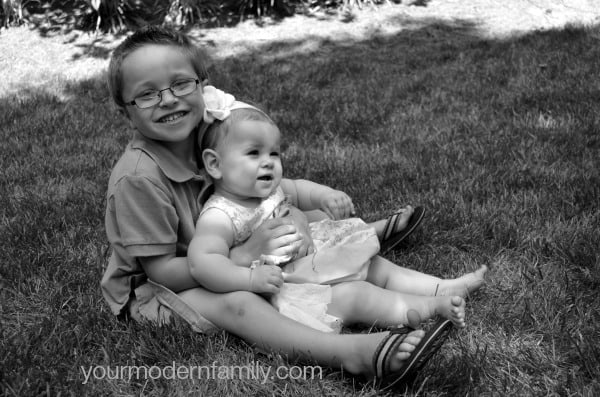
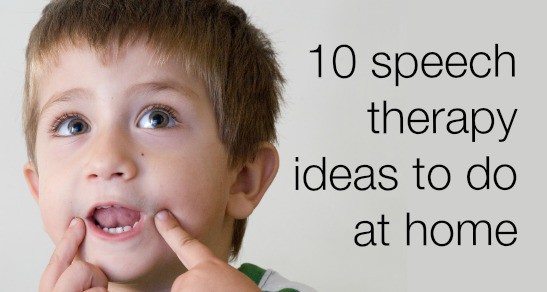

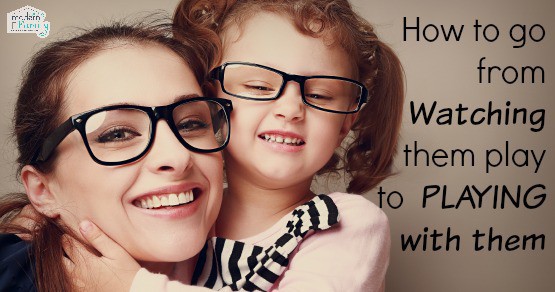
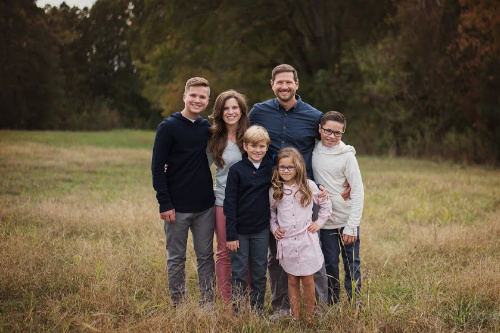
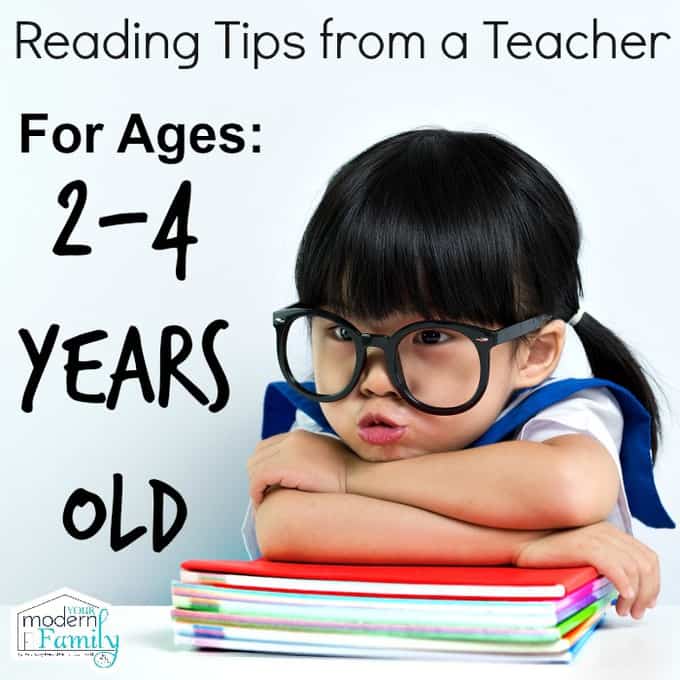



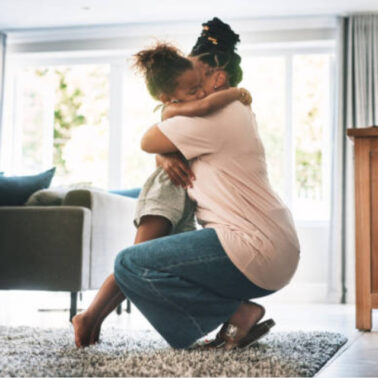


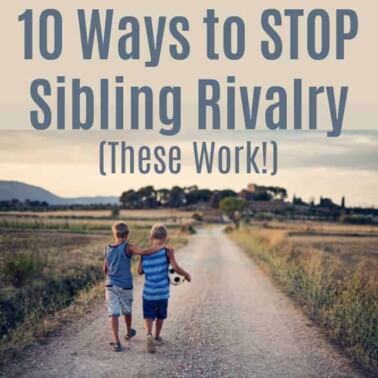









I loved this read. Will definitely come in handy
I wish there was an option to print the articles. A lot of good information but difficult to remember all of it.
🙂 Well I’m glad you liked it!!
All ideas given Beautifully… Liked it. Hope I could follow most of them.
My 10 month old puts everything in his mouth. What do I do about that!
What I suggest you need to keep making the hands out of baby’s mouth. And you will see it will reduce after some days … And also give your baby something to hold in her/him hand. SO the engagement will make baby forget to put hand in mouth. My 5 months old daughter is doing the same and I am always trying not to do that.Now this has been reduced a lot. May be some more days to try and then she will forget to do that.
Their mouth is their first way to explore things in sensory development. It will eventually slow down.
I must do for my baby girl
Thanks a
I loved this article . Will definitely come in handy
My baby use to sleep 6-8 hours a night up until three months old. She is now six months with two teeth and waking every 2 hours at night. I put her on my breast and she almost falls back asleep instantly, I think it’s comforting for her teeth. How can I make her sleep through the night again?
Oh boy- that’s a hard one. I think that she is in the habit of waking up and having helped to fall back to sleep. Have you tried a pacifier just at those times? (WHen she wakes, hold her and give her a pacifier. She will suck a lot and then just slow down and stop, falling back to sleep). Just put her back into bed (you don’t need to leave the pacifier – just use it while she is really sucking). Soon, they stop waking just for a paci. 🙂
I had played almost these activities with my children when they young. They are very interested and really enjoyed when I played with them. It is good for their development, recommended!
Thanks “Becky” for sharing an effective post for every parent. As a mom, I feel that your recommended all things people should play with their kids.
Very helpful information. First-time parents must read this. We always think 6-12 months of infant time is just to play with them but teaching in this age is really a wonderful thing to learn. Thank you for sharing the post.
This article was very informative! I’m also seeking to provide support and resources to parents. I find that sometimes, parents have difficulty putting advice from pediatricians into practice. I’m so glad there are so many resources available.
Great! I’m so glad that you were able to find this post. Good luck!
I work in a daycare with 6 month to a year babies.
We have a “curriculum” each month. I’m looking for things we can do with these little ones and your articles have been a great help. My teaching partner doesn’t really go in for the curriculum; we are super busy all day changing diapers, getting meals done, bottles done, etc. I am excited to get her to help me with the simple ideas you have given.
Thank you